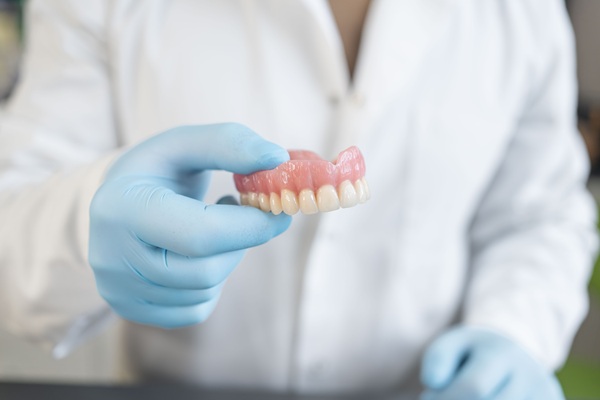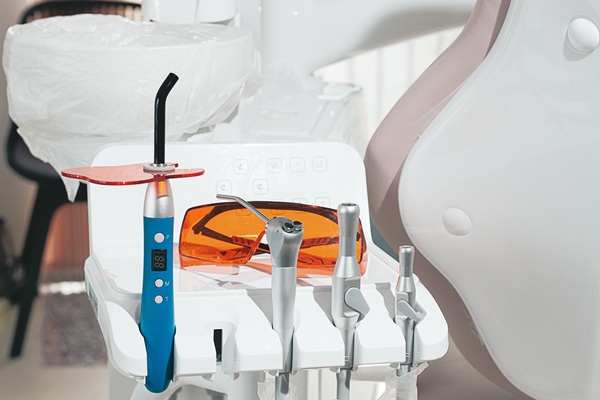 Following a root canal, patients must restore the tooth to ensure it is fully functional. Dental crowns are the most commonly used dental restoration after these procedures. Their full coverage and natural appearance make for a well-rounded restoration that blends in with the rest of the smile. Read on to learn more about crowns and when and why they would be recommended following a root canal.
Following a root canal, patients must restore the tooth to ensure it is fully functional. Dental crowns are the most commonly used dental restoration after these procedures. Their full coverage and natural appearance make for a well-rounded restoration that blends in with the rest of the smile. Read on to learn more about crowns and when and why they would be recommended following a root canal.
Understanding root canals
A root canal is a restorative dental procedure to remove an infection or abscess in the tooth's root, also known as the pulp. An untreated cavity is the most common cause of infected, abscessed, or inflamed pulps. It typically takes a 30- to 60-minute appointment to remove the pulp, clean and shape the tooth root, then fill and seal the tooth.
Root canals are no longer painful procedures. The dentist will use a local anesthetic to prevent patient pain and discomfort, making the experience more like filling a cavity.
When dental crowns are recommended after a root canal
Dental crowns are caps that can cover a damaged tooth. While they are common after a root canal, they are not always required. A crown is necessary and beneficial when the root canal has removed a large portion of the natural tooth structure. In these cases, restoring the tooth with dental bonding (the tooth-colored material used to fill minor cavities) or other dental restorations with less coverage would not be practical.
After a root canal, the dentist will order a custom-made crown from a dental lab so the patient can maintain as much of their remaining healthy tooth structure as possible. In the meantime, the dentist will give the patient a temporary filling. It is sometimes possible to place the crown immediately after the root canal procedure.
Types of dental crowns
More than one type of dental crown may be installed following a root canal. Porcelain and all-ceramic crowns are the most popular because they look and feel like real teeth; they are color-matched to the surrounding teeth and have an opaque shine. They are also hypoallergenic, making them a great choice for patients with metal allergies.
The dentist may install a metal crown after a root canal. However, this type of crown may contain nickel, gold, or other metals, so patients with allergies must be careful. Although metal crowns do not blend in with the teeth, they are durable and great for restoring molars.
Porcelain-fused-to-metal crowns combine some of the benefits of porcelain crowns and metal crowns. The porcelain coating gives them the natural tooth look, while the metal center allows them to withstand chewing and biting pressure. Note that the porcelain may wear away and expose the metal center over time.
Restore damaged teeth with dental crowns
Root canal procedures are done to remove inflamed pulps and salvage the healthy parts of the tooth. Unfortunately, the remaining structure often cannot support the full use of the tooth. A dental crown can restore functionality to the damaged tooth and leave the patient with a beautiful, full smile. Contact us to learn more.
Request an appointment or call Dental Partners Copperhill at 423-241-6102 for an appointment in our Copperhill office.
Related Posts
Curious about when root canals are needed? Read on to learn more about this dental treatment. Severe tooth decay or root and pulp infections can necessitate a dental procedure known as a root canal. Although some patients may harbor concerns about this treatment, it plays a vital role in salvaging damaged teeth. By opting for…
Dentures are a reliable solution for restoring proper oral function after tooth loss. While dental implants have gained popularity in recent years, dentures continue to be an effective treatment method for many people looking to repair their smiles. The following blog explores the pros and cons of dentures versus dental implants, highlighting why dentures are…
Dental fillings are one of the most common ways that cavities are treated by dentists. For cavities that are mild to moderate, dental fillings are the most appropriate route to take. Additionally, it is one of the most straightforward procedures to perform. With that, it is helpful to have an understanding of what goes on…


